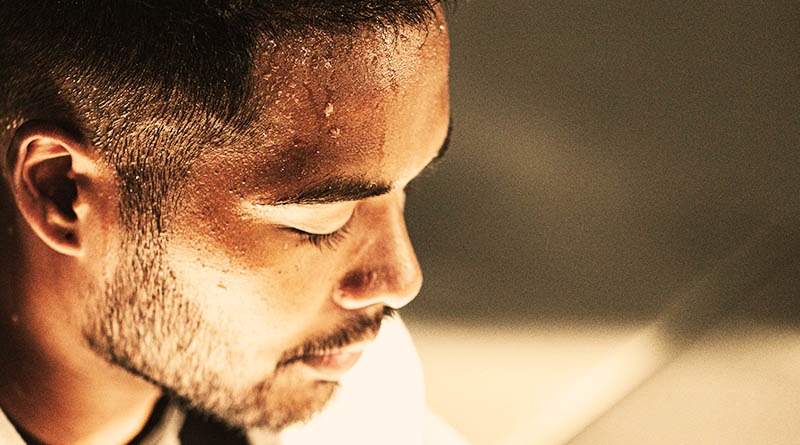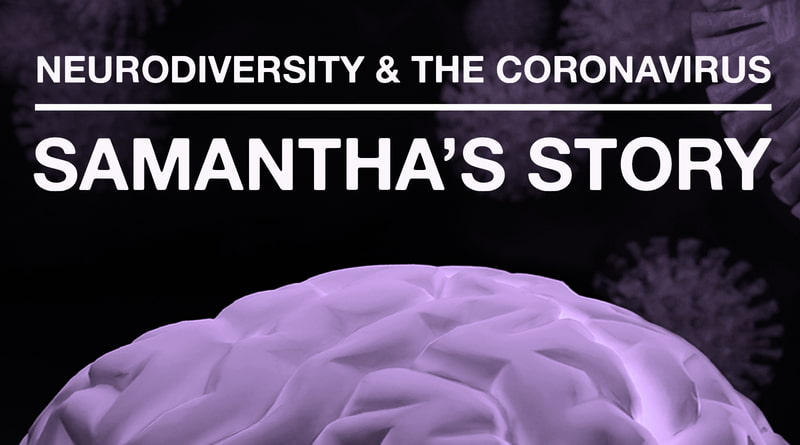
The Journey Through School and Work of One Young Woman with Autism
By Rebecca Witonsky
The purpose of this blog is to serve as an advocate, writer, and speaker for people with autism. I seek to share the perspective of one female autistic young adult who has been bullied at school and work. My aim is to help mainstream society to better understand how autistic people function at school and work with the goal of changing the conditions facing autistic people in both the school and work environments.
One unique or unusual aspect of my story is that unlike the majority of autistic people today who are diagnosed in early childhood, I didn’t receive my autism diagnosis until I was in mid to late 30’s. As a result, I endured a lifetime of bullying at school and work without really understanding the underlying cause of my suffering. But the belated discovery of my autism diagnosis was both liberating and traumatic because I suffered for so long without knowing what was really wrong in my life or why I was enduring so much pain.
My journey begins with what appears to be a typically female adolescence in which I was ruthlessly bullied by my peers at both Pine Crest and Saint Andrew’s. I went to Pine Crest for middle school and Saint Andrew’s for high school and at both institutions I was singled out for what appeared to be a significant amount of bullying and psychological abuse at the hands of my peers.
My teachers at Saint Andrew’s were sensitive to the factor of anti-Semitism which affected me greatly at the school and which contributed to the bullying for sure. However, no one, including me, knew that I was autistic at the time. And so no one, neither me nor my allied teachers, knew how to help me with this situation because one of the underlying causes of the bullying remained mysterious and unknown. The situation is comparable to playing cards without a full deck of materials that can allow you to function and to make good decisions.
Children with AS are more socially and emotionally immature than their peers, which contributes toward their being socially isolated, ridiculed and tormented. Having considerably advanced intellectual maturity in comparison to one’s peers can further increase social isolation and alienation. The child may have no peer group in his or her classroom, socially or intellectually. (Page 254 Attwood)
I think this factor is definitely true for me and helps explain why I was such a target for the bullies in middle school and high school and why I had such a hard time during this period of my life. I think there was an inverse correlation between my high intellect and my weak social skills and between my high intellect and my poor social experience at the hands of peers who did not understand my social difference and tormented me because of it. I had no peer group in my classroom, either socially or intellectually and particularly not in the social arena.
My journey continued with attendance at Brown University. At that time I anticipated seeking a PhD in international relations with a focus on Russian studies and pursuing a tenure track teaching position in academia. Ironically, many of the autism career guides written by leading autistic people such as Dr. Temple Grandin and leading autism experts such as Dr. Tony Attwood recommend that autistic people pursue this career path of a job in academia. They believe, I think falsely, that academia is a more tolerant and humane environment which can more easily accommodate autistic people. So I was trying to pursue the career path that is designated in the autism world as suitable for autistic people without even knowing I was autistic.
‘…conflict and confrontation with adults can be made worse by non-compliance, negativism, and a difficulty in perceiving the social status or hierarchy, resulting in a failure to respect authority or maturity. The child with AS is often immature in the art of negotiation and compromise and may not know when to back down or apologize. He or she will not accept a particular school rule if it appears to be illogical, and will pursue a point or argument as a matter of principle. This can lead to a history of significant conflict with teachers and school authorities.’ (Page 20, Attwood)
I think he very accurately describes my history of conflict with the authorities at Brown University. I argued with the professor intensely on a matter of principle, namely his perceived support for Stalinism and I was challenging the academic hierarchy in doing so. I argued with him publicly in class. At the time I was a freshman, and he was a senior tenured professor and a highly respected scholar in his field. I violated the academic hierarchy in challenging him publicly and so I was punished for failing to respect this hierarchy. He punished me by giving me a poor grade in his class in order to send me a message not to challenge his authority.
I am not the only autistic person who has been bullied on the job. In her book Different not less, Temple Grandin profiles the experiences of autistic people who have functioned successfully on the job in different fields. But one of the authors, Anita Lesko, a nurse anesthetist and aviation writer, said that The only challenges I have faced at my job have been bullying. This only occurred with several individuals, but one in particular bullied me for ten years, in one case spreading a false rumor that she was a drunk driver to her co-workers. (Page 186, Grandin)
Neil McRae ‘My main dislike is the small but significant, proportion of NT people who react with condescension and disdain to people with ASD and attempt to undermine us. This is the most common type of bullying I have encountered in my life; there is at least one such person in every workplace above a certain size…My most painful memories of bullying are from my university years, in the form of frank contempt expressed by a few fellow students for someone who was socially lacking.
Later, during my working life, there were sustained hate campaigns by a few trouble making colleagues who homed in on me, perhaps sensing difference and equating that with weakness. Looking back, it is clear to me now that those were deeply unhappy individuals with no insights into their own dysfunctional psychology.’ (Page 234, Grandin)
I find it painful and difficult emotionally to read about the bullying that other autistic people have faced in the workplace, perhaps because it triggers traumatic and unresolved memories of bullying that I have faced in the workplace at the hands of colleagues and bosses alike. I was bullied repeatedly by bosses including the one who drove me out of the only job I ever held in accounting. I was also bullied by assistant supervisors as in the case of the one from the company where I had been happiest prior to the arrival of the bully on staff.
“Problems with social inclusion, acceptance, and academic success can precipitate a clinical depression, or anger directed to others or the ‘system.’” (Page 20, Attwood)
Unfortunately, my experience at Brown destroyed my interest in an academic career and was the beginning of a long journey of suffering in the professional world. I was driven out of academia at Brown by a combination of covert anti-Semitism and undiagnosed autism and was unable to pursue my dream of an academic career.
Graduation from Brown did not solve my career problems either. After graduating from Brown, I attended 60 interviews for positions in business and did not make it to the second round of a single interview. This experience only confirmed that I was struggling in the career world, but I still did not know I was autistic.
After graduating from Brown, I was fired from numerous jobs within days or weeks of being hired due to meltdowns. I had a meltdown on my first day at my job at a bank in Boston and was rapidly fired. I had another meltdown in another job where I flourished for four months and then could not function because one of my female bosses began to target and torment me on the grounds that my voice was too loud. I needed to use the telephone in order to perform my job at that company because my primary responsibility was calling up companies to gather information about their customers, competitors, strategic partners, and market. The problem was that every time I picked up the phone to do my job, I would receive harassing instant messages from this supervisor who felt threatened by me and who seemed intent on preventing me from doing my job. This experience was another example of bullying that drove me out of the mainstreams workforce. The bullying was a tragedy in this case because the main boss at the company was a highly empathetic and compassionate man and yet I was afraid to tell him the truth about how his employee was terrorizing me.
I subsequently earned a masters of taxation at Florida Atlantic University and aimed to become an accountant and to pursue my CPA. Unfortunately, after graduating from FAU with a GPA of 3.80 / 4.00, I still could not find a job. I attended numerous interviews but once again could not land a job. And I still didn’t know I was autistic.
I want to make a difference in the lives of people with autism by sharing my experiences and letting other autistic people who are being bullied in school and work and home know that you are not alone, that other people with autism understand you and want to support and empower you.
I had a negative experience in the one job that I held in accounting as well. My boss was a bully who psychologically terrorized me and did not give me the tools or training I needed to become a successful accountant. I could not find a job with the mainstream accounting firms and I was forced to take a job at a local firm which featured a hostile work environment.
I discovered my autism late in life in my late 30’s after being systematically driven out of the workforce in numerous fields ranging from accounting and business to international relations over a period of greater than a decade. I discovered my autism after reading a book on the condition and finding that I met the majority of the criteria. I was subsequently diagnosed by a leading autism psychiatrist who encouraged me to write books on ASD and who offered to co-write books with me. This discovery was life changing and empowering for me because it helped me to understand why my struggle to make a living in the mainstream workforce was so profound and intense. It also helped me to come to terms with a difficult past and to find a community of like-minded individuals who had experienced similar levels of discrimination due to both diagnosed and undiagnosed autism.
After discovering my autism belatedly, my most empowering experience was my work as a teacher at the Dan Marino Foundation. In that role I discovered my capacity for changing the lives of my students who had different levels of autism and various ranges of academic ability ranging from two courses of students with severe intellectual disability to one group of students who were gifted intellectually. That role changed my life because it enabled me to serve as a role model and guide for my students who had also autism and in some cases cerebral palsy which I also have. This role allowed me to discover intellectual and social abilities which I did not know I had and to become a more effective advocate and supporter for people with autism and disabilities in general as well.
My ability to change lives was highly empowering and inspiring and helped me to come to terms with the discrimination and hostility that I encountered from too many employers in the mainstream workforce who probably knew that I autism long before I did. My own feeling is that the autism community has to find a way to accommodate the many autistic young people who are talented in fields outside computer science. I think the employment model for the autistic community is overly focused on the technical fields and does not provide sufficient space and empowerment for people with autism who cannot work in the technical fields. The autism community needs to acknowledge that autistic people come in all shapes and sizes and we are not all suitable for the technical fields.
I also participated in the Autism Speaks walk in 2013 shortly after my official diagnosis. This experience was highly moving and inspiring because I connected with parents of autistic children and with a community of people who embraced me. I bonded with a teacher who wrote a book which is designed to improve the conditions for autistic young children by teaching tolerance and understanding to mainstream young children with autism.
I wrote a number of articles for autism magazines including one which was called “The Autism World has Changed my life.” This article described the ways that participation in the autism world liberated me from my fears about my autism and helped me to heal from the trauma that I endured as a result of my autism and also
In addition I have made friends with many autistic young people through the Austism and Asperger’s support Group in my local university. This social group has allowed me to make friends and share perspectives and experiences and made me realize that I am not alone in struggling to overcome the social deficits and employment discrimination which are a reality of too many autistic people.
Writing about the autism is itself a therapeutic and liberating act because it allows me to feel that I am sharing my experiences with the aim of helping others and of changing lives. The goal of my writing is to raise awareness and empathy for the experiences of autistic people in the workforce among both fellow autistic people and among mainstream society. My goal is to connect with others and help others to understand the perspective of one autistic young woman who has suffered discrimination but also encountered hope and inspiration as a result of discovering her autism.
The autism has undoubtedly made my life difficult as it has prevented me from pursuing many mainstream careers and led me to feel a sense of despair at times because I feel excluded from mainstream society. At the same time the autism is also a source of strength because it has given me a chance to help others and to connect with others who have similar experiences. I want to make a difference in the lives of people with autism by sharing my experiences and letting other autistic people who are being bullied in school and work and home know that you are not alone, that other people with autism understand you and want to support and empower you.
I am trying to come to terms with a difficult past and to work with employers so that they can better understand how to integrate autistic people into the workforce. I think that by coming together with mainstream employers we can help improve the odds of success for autistic young people in the workforce and also educate employers about the social differences of autism which sometimes impede efforts to integrate autistic people into the mainstream workforce.
Prior to my diagnosis the job world was a vicious cycle for me. The more I was rejected the less likely I was to pursue subsequent employment. And it was hard to break this cycle until I found out I was autistic and until I found the right job for me as an autistic person – namely teaching other autistic people in an autism friendly environment. The year that I taught other autistic people was the happiest year of my life especially the happiest year since my diagnosis. I greatly enjoyed working for the Dan Marino Foundation as it helped to rebuild my broken self-confidence and to restore my sense of purpose and of self and my feeling of value in the world. It helped to heal my shattered self-esteem and to make me feel that I had a sense of purpose and value in the world.
Sources:
“The Complete Guide to Asperger’s Syndrome” by Dr. Tony Attwood
“Different…Not Less” by Temple Grandin
Rebecca Witonsky was the founder and president of Essential Business Planning. EBP produced business plans for companies to attract venture capital and bank loans. She created business plans for two companies that she launched herself, namely Private Equity Research which involved the publication of a Latin America newsletter that successfully targeted investment banks, venture capital, and law firms, and a private tutoring service. She has found successful investments in the US and Latin America, including the public company America Movil and the private company Mercado Libre. She also wrote business plans for two firms in the disability sector.
Rebecca discovered her autism at age 36. This discovery changed her life and empowered her to help other people with disabilities. To that end, she worked as an adjunct instructor of personal finance and entrepreneurship at Marino Campus, which served young adults with developmental disabilities. She served on the board of Leadership and Economic Empowerment for Developmental Disabilities which provides entrepreneurship services to the disabled population. From 2013 to 2020, she served on the Florida Rehabilitation Council which monitors the state vocational rehabilitation system. She delivered oral presentations before the Broward County Society of Human Resources in 2015 and the Florida Rehabilitation Council in 2016 about employment issues facing the disabled population.
Her educational background consists of a BA in international relations from Brown University and a masters degree in taxation from Florida Atlantic University.
She currently works as a researcher and writer for Griffin Hammis Associates, a national disability policy consultancy. This role includes preparing reports on the self employment policies of all the vocational rehabilitation(VR) and blind VR agencies around the country. It also entails researching the issue of subminimum wage workshops for people with disabilities. The role also includes training to become a benefits planner for people with disabilities.
She is fluent in Spanish and has an intermediate reading knowledge of Russian language. Her special interest is Russian studies and international relations, and she is planning to become fluent in Russian. She is working on a book about the Russian-Ukraine war and the Russian democratic anti-war movement.
She can be reached via email at Rebecca.witonsky22@gmail.com




